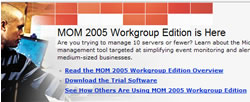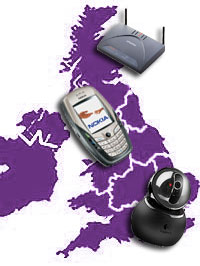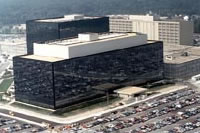 The BPI continued its policy of clamping down on illegal file sharing this week, when it contacted UK ISPs Cable and Wireless and Tiscali with requests to suspend 59 accounts.
The BPI continued its policy of clamping down on illegal file sharing this week, when it contacted UK ISPs Cable and Wireless and Tiscali with requests to suspend 59 accounts.
BPI Chairman Peter Jamieson said, “We have demonstrated in the courts that unauthorised filesharing is against the law. We have said for months that it is unacceptable for ISPs to turn a blind eye to industrial-scale copyright infringement. We are providing Tiscali and Cable & Wireless with unequivocal evidence of copyright infringement via their services. It is now up to them to put their house in order and pull the plug on these people.”
In a statement, Cable and Wireless said “Cable & Wireless and its ISP, Bulldog, have an acceptable use policy that covers illegal file-sharing. This would normally mean that any accounts used for illegal file-sharing are closed. We will take whatever steps are necessary to put the matter right.”
Tiscali questioned the BPI’s approach – which saw the announcement being delivered to the press at the same time as the ISPs – and its evidence. In a letter to the BPI, Tiscali pointed out that “You have sent us a spreadsheet setting out a list of 17 IP addresses you allege belong to Tiscali customers, whom you allege have infringed the copyright of your members, together with the dates and times and with which sound recording you allege that they have done so. You have also sent us extracts of screenshots of the shared drive of one of those customers. You state that such evidence is “overwhelming”. However, you have provided no actual evidence in respect of 16 of the accounts. Further, you have provided no evidence of downloading taking place nor have you provided evidence that the shared drive was connected by the relevant IP address at the relevant time.”
 In a statement on 12th July, the BPI stated “Early responses from both companies suggest that they will suspend accounts which have clearly been used for illegal filesharing” and indicated that it could supply detailed evidence on the other 16 Tiscali addresses. In an interview on More Four News Tiscali spokesman Richard Ayres said Tiscali’s message to the record industry is “Come to us, give us the details and we’ll absolutely work with you.” Which would seem to be in contradiction of Tiscali’s own letter, which also stated that “Tiscali does not intend to require its customers to enter into the undertakings proposed by you and, in any event, our initial view is that they are more restrictive than is reasonable or necessary.”
In a statement on 12th July, the BPI stated “Early responses from both companies suggest that they will suspend accounts which have clearly been used for illegal filesharing” and indicated that it could supply detailed evidence on the other 16 Tiscali addresses. In an interview on More Four News Tiscali spokesman Richard Ayres said Tiscali’s message to the record industry is “Come to us, give us the details and we’ll absolutely work with you.” Which would seem to be in contradiction of Tiscali’s own letter, which also stated that “Tiscali does not intend to require its customers to enter into the undertakings proposed by you and, in any event, our initial view is that they are more restrictive than is reasonable or necessary.”
Whatever the outcome, the action represents a new approach to the copyright battle that is focused on service providers instead of individuals. Some feel that copyright infringement is being used as a way to stifle innovation and free speech.
Copyright activist Cory Doctorow, claimed that “The BPI is basically asking to replace the “notice-and-takedown” regime that allows anyone to censor any Web-page by claiming it infringes copyright with an even harsher regime: notice-and-termination, where the ability to communicate over the Internet can be taken away on the say-so of anyone who claims you’re doing something naughty with copyright…If this regime had been in place when VoIP was invented, there would be no VoIP”.
 Coincidentally, the BPI action comes at the same time that the (US based) EFF launched its Frequently Awkward Questions for the Entertainment Industry. The FAQ features a number of pointed questions designed to counter the aggressive behavior of US copyright protection agencies such as the RIAA and MPAA. Among them are points such as “The RIAA has sued over 20,000 music fans for file sharing, who have on average paid a $3,750 settlement. That’s over $75,000,000. Has any money collected from your lawsuits gone to pay actual artists? Where’s all that money going?” and “The RIAA has sued more than 20,000 music fans for file sharing, yet file sharing continues to rapidly increase both online and offline. When will you stop suing music fans?” In the UK, the BPI has issued proceedings against 139 uploaders in the last three years. Of those, 111 settled out of court, paying up to £6,500 in settlement.
Coincidentally, the BPI action comes at the same time that the (US based) EFF launched its Frequently Awkward Questions for the Entertainment Industry. The FAQ features a number of pointed questions designed to counter the aggressive behavior of US copyright protection agencies such as the RIAA and MPAA. Among them are points such as “The RIAA has sued over 20,000 music fans for file sharing, who have on average paid a $3,750 settlement. That’s over $75,000,000. Has any money collected from your lawsuits gone to pay actual artists? Where’s all that money going?” and “The RIAA has sued more than 20,000 music fans for file sharing, yet file sharing continues to rapidly increase both online and offline. When will you stop suing music fans?” In the UK, the BPI has issued proceedings against 139 uploaders in the last three years. Of those, 111 settled out of court, paying up to £6,500 in settlement.
The BPI was noticeably absent from the group of industry organizations which gathered in London on the 12th of July to discuss new ways of charging for electronic distribution of copyright material. Their proposal, that “unlicensed intermediaries – rather than consumers” should be “the target of copyright enforcement actions”, was described as “ill-conceived and grasping” by Suw Charman, executive director of the Open Rights Group.
This fragmented and seemingly ad-hoc approach to the copyright issue is doing little to help the overall debate and a groundswell of resistance to both copyright and the way it is enforced has given birth to organizations such as the Pirate Party who demand wide-scale reform of the whole concept.
 Microsoft have been fined by the European Commission for failing to comply with an anti-competitive ruling.
Microsoft have been fined by the European Commission for failing to comply with an anti-competitive ruling. Competition Commissioner Neelie Kroes was quoted by Reuters as saying, “Microsoft has still not put an end to its illegal conduct. I have no alternative but to levy penalty payments for this continued non-compliance. No company is above the law.”
Competition Commissioner Neelie Kroes was quoted by Reuters as saying, “Microsoft has still not put an end to its illegal conduct. I have no alternative but to levy penalty payments for this continued non-compliance. No company is above the law.” Shaun Woodward (right) the MP famed for the twin disgraces of his defection from the Conservatives to Labour and a stint working with Esther Rantzen on That’s Life, is now Creative Industries minister and is busy singing the virtues of the UK’s Digital TV switchover plans.
Shaun Woodward (right) the MP famed for the twin disgraces of his defection from the Conservatives to Labour and a stint working with Esther Rantzen on That’s Life, is now Creative Industries minister and is busy singing the virtues of the UK’s Digital TV switchover plans. Digital UK had the current 98.5% coverage as a target and expects to meet this with additional coverage being by satellite, cable and broadband. Current figures indicate a rump of around 2% of refuseniks, those viewers content with a meagre 4 or 5 channels who see no value in multi-channel viewing, but expectations are this number will shrink as the digitisation spreads across the country like a warm front.
Digital UK had the current 98.5% coverage as a target and expects to meet this with additional coverage being by satellite, cable and broadband. Current figures indicate a rump of around 2% of refuseniks, those viewers content with a meagre 4 or 5 channels who see no value in multi-channel viewing, but expectations are this number will shrink as the digitisation spreads across the country like a warm front. With credit card-crazy Brits leading at the front, Europeans are spending ever more money online, with the yearly total for 2006 on course to hit €100bn.
With credit card-crazy Brits leading at the front, Europeans are spending ever more money online, with the yearly total for 2006 on course to hit €100bn. So where’s the cash going?
So where’s the cash going?  The research was carried out by consultancy firm, Accent, after being commissioned by GNER will shock precisely no-one who has used a train on a regular basis. We’re sure that every laptop-toting rail-warrior will whole heartily agree with this one.
The research was carried out by consultancy firm, Accent, after being commissioned by GNER will shock precisely no-one who has used a train on a regular basis. We’re sure that every laptop-toting rail-warrior will whole heartily agree with this one. If there is a consistent WiFi connection, it may lead to a peculiar situation where it will be better to make calls on a VoIP service rather than rely on the very patchy cellular service that you get on-board trains.
If there is a consistent WiFi connection, it may lead to a peculiar situation where it will be better to make calls on a VoIP service rather than rely on the very patchy cellular service that you get on-board trains. The US Democratic party has adopted net-neutrality as a party-political issue following the rejection of a second pro-neutrality amendment in a vote late last week.
The US Democratic party has adopted net-neutrality as a party-political issue following the rejection of a second pro-neutrality amendment in a vote late last week. Former presidential candidate Senator John Kerry commented, “This vote was a gift to cable and telephone companies, and a slap in the face of every Internet user and consumer.” Another Democrat, Senator Ron Wyden, placed a ‘hold’ on the bill which temporarily stops further progress but a decision is inevitable and both sides are marshaling forces behind their cause.
Former presidential candidate Senator John Kerry commented, “This vote was a gift to cable and telephone companies, and a slap in the face of every Internet user and consumer.” Another Democrat, Senator Ron Wyden, placed a ‘hold’ on the bill which temporarily stops further progress but a decision is inevitable and both sides are marshaling forces behind their cause. Ofcom has just issued guidance that GPS repeaters are probably illegal in the UK, both in their use and their sale.
Ofcom has just issued guidance that GPS repeaters are probably illegal in the UK, both in their use and their sale. GPS devices need to be able to receive the positional information from satellites. Initially this involved having line-of-sight to the ‘birds’, but as chip-sets have improved, they’ve become more sensitive, so requiring less direct sight. If GPS units work within buildings, they do so at the sacrifice of accuracy. Even with the chip improvements, GPS will not work within buildings, and certainly not underground.
GPS devices need to be able to receive the positional information from satellites. Initially this involved having line-of-sight to the ‘birds’, but as chip-sets have improved, they’ve become more sensitive, so requiring less direct sight. If GPS units work within buildings, they do so at the sacrifice of accuracy. Even with the chip improvements, GPS will not work within buildings, and certainly not underground. Brits are going wild for the latest technological innovations according to market research firm GfK in its biannual ‘UK Technology Barometer report.’
Brits are going wild for the latest technological innovations according to market research firm GfK in its biannual ‘UK Technology Barometer report.’ Not surprisingly, smartphones continue to set the cash tills ringing with a big increase in sales, while single-function PDAs are carrying on their slow decline, with sales slumping by 38.3%.
Not surprisingly, smartphones continue to set the cash tills ringing with a big increase in sales, while single-function PDAs are carrying on their slow decline, with sales slumping by 38.3%. Imagine a world where Internet performance is controlled by the company who owns the cables and where speed is sold to the highest bidder. Imagine a world where some Web sites load faster than others, where some sites aren’t even visible and where search engines pay a tax to make sure their services perform at an acceptable speed. That’s the world US Telecommunications companies (telcos) such as AT&T, Verizon, Comcast and Time Warner are trying to create.
Imagine a world where Internet performance is controlled by the company who owns the cables and where speed is sold to the highest bidder. Imagine a world where some Web sites load faster than others, where some sites aren’t even visible and where search engines pay a tax to make sure their services perform at an acceptable speed. That’s the world US Telecommunications companies (telcos) such as AT&T, Verizon, Comcast and Time Warner are trying to create. Think carefully the next time you edit your Flickr or Myspace profile.
Think carefully the next time you edit your Flickr or Myspace profile.  In September 2005 the European Commission adopted a proposal that would see telecommunications data held for one year and Internet data for six months and, last month, the European Court annulled the agreement which compelled airlines to submit private data on passengers flying to the US.
In September 2005 the European Commission adopted a proposal that would see telecommunications data held for one year and Internet data for six months and, last month, the European Court annulled the agreement which compelled airlines to submit private data on passengers flying to the US.